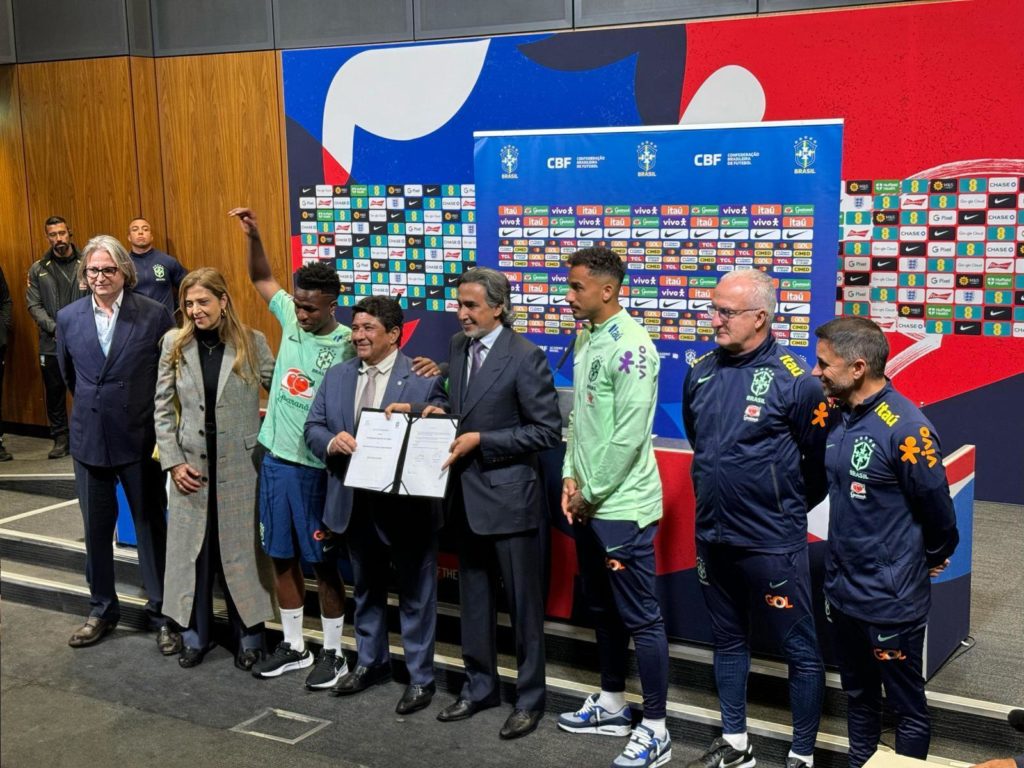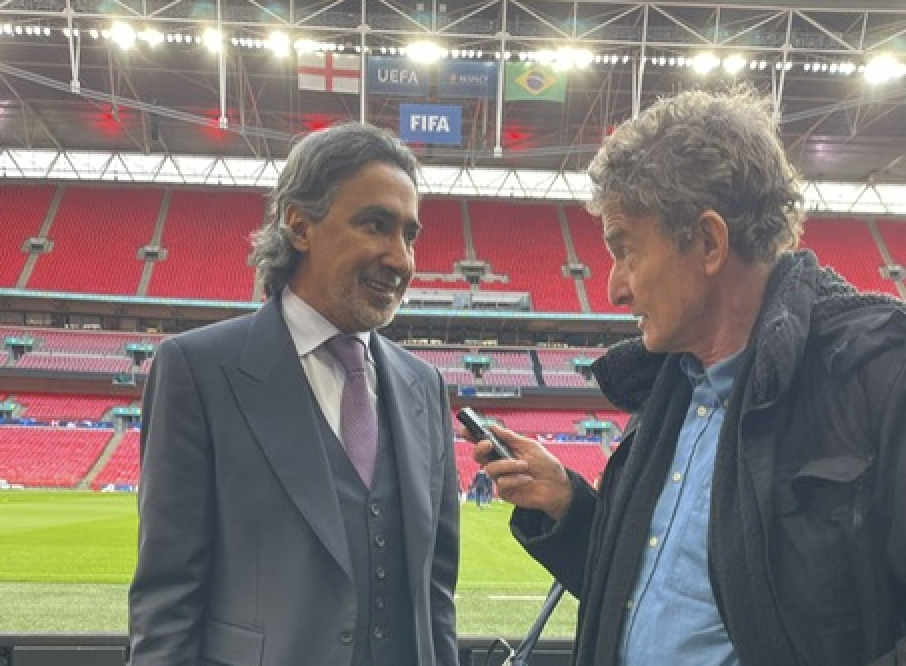By Andrew Warshaw
March 28 – When Mohammed Hanzab set up the International Centre for Sport Security back in 2010 with the vision of safeguarding global sport from corruptive practises, there were plenty of cynics who took the view it was simply a self-serving vanity project.
But more than a decade on, stakeholders are queuing up to partner with the Qatar-based not-for-profit organisation.
The latest of these is the Brazilian FA which last week signed a landmark co-operation deal to protect Brazilian football – leagues, clubs and officials – from match-fixing and other threats to its integrity including a training and awareness campaign.
“When CBF told us about their plans to position Brazil, with its over 200 million inhabitants and many more Brazilian Football fans around the world, as an international benchmark in the field of integrity, we understood there was a unique opportunity to put into practice, on the ground, all the knowledge and the instruments we have developed in the last 12 years,” Hanzab (pictured left), ICSS’s founder and chairman, said at the signing ceremony at Wembley on the eve of the England-Brazil friendly.
The CBF deal marked the first time the ICSS had struck a long-term partnership with a specific national football federation, having previously dealt mainly with governing bodies.
“It’s a very serious agreement, it’s not just signing a piece of paper and it’s not just about one issue alone,” Hanzab said in an interview with Insideworldfootball on the sidelines of the signing ceremony.
“It’s a total reform of best practise in Brazilian football, supported by both Conmebol and FIFA, and in my opinion a very courageous step for them to admit they have an issue. Our aim is to make Brazil a benchmark for others to follow. Things like match fixing and illegal betting have a huge negative economic impact.”
Since its establishment, the ICSS has worked with numerous National Olympic Committees, international federations, governments, cities, leagues, clubs, venue operators, major event organisers and other stakeholders to safeguard sport – including a raft of ongoing initiatives with the European Union (EU).
The latest agreement was signed a critical time for the football industry given the various threats to its integrity in terms of match-fixing, racism, money laundering, illegal betting and other forms of dodgy dealing.

But the ICSS has its standards and doesn’t just work with any interested party. “For the last couple of years, the headlines have been there for all to see with all manner of scandals across the world,” Hanzab said. “But we are very selective in terms of who we deal with. Do we ever say no? Certainly if we feel it’s just a PR exercise or maybe to please the media in a particular country.”
One of Hanzab’s most cherished projects in conjunction with the EU is a so-called Sports Transparency Index which is still being developed.
“We will rank clubs, leagues and governing bodies in all kinds of sports in terms of their integrity,” he explained. “We hope it will provide an important tool for investors when they decide who to choose, depending on how high the ranking is. This is a dream for me.”
Hanzab is quick to dismiss the suggestion that it could be interpreted as a name and shame exercise. “It’s to help the deserving good guys because not everyone is equal. I’m hoping we can roll it out by the end of next year.”
Hanzab, whose staff comprise several different nationalities, is proud of the fact that the ICSS has proved it is not simply a philanthropic organisation, more an independent global hub seeking positive change.
“We are a structured and disciplined body. We don’t just work on perception or trying to make a noise. We deal with facts and figures. For instance, did you know 80% of the €500 billion sports betting industry is illegal. And when it comes to money laundering, no one other than us has measured this. You’re talking about $140 billion every year.”
These kind of eye-watering figures illustrate the challenges facing the ICSS, challenges which Hanzab relishes.
“I always say no single organisation can tackle corruption in sport. It has to be global, holistic and inclusive. That’s why sometimes I’m not in favour of integrity initiatives that don’t have the required capacity. Some people don’t want to admit they have a problem because, for instance, they don’t want to lose sponsors. Or they punish some tiny club on an ad hoc basis that actually makes little or no difference.”
As ICSS moves forward, Hanzab recognises the world of sport is still full of malpractise but believes his organisation is making significant progress to stamp it out.
“When I look back at our first conference in 2011 in Qatar, nobody was really interested in us, especially in the media. But we took the lead as far as international co-operation is concerned.
“The key is that we are making a difference. No sponsor, for instance, wants to see their reputation damaged by being associated with a corruption-tainted client. We are not there yet in terms of a global clean-up but we are making real progress.”
Contact the writer of this story at moc.l1745691302labto1745691302ofdlr1745691302owedi1745691302sni@w1745691302ahsra1745691302w.wer1745691302dna1745691302
(end)

